Services
Smile Makeover
Today's “beauty pattern” has a great demand. The smile is a crucial component in the
esthetic concept. A beautiful smile is very important for first impression and help
to increase the self-confidence.
“A beautiful smile open doors by itself”
In Westward Dental we can create the smile of your dreams; we have the highest trained dentist with the best technology and experience to help you meet your goals. Visit our photo gallery and check the dramatic change before and after a smile reconstruction. Our patient get so thrill that it is a changing life experience.Call us today for a free consultation and make your dreams come true.
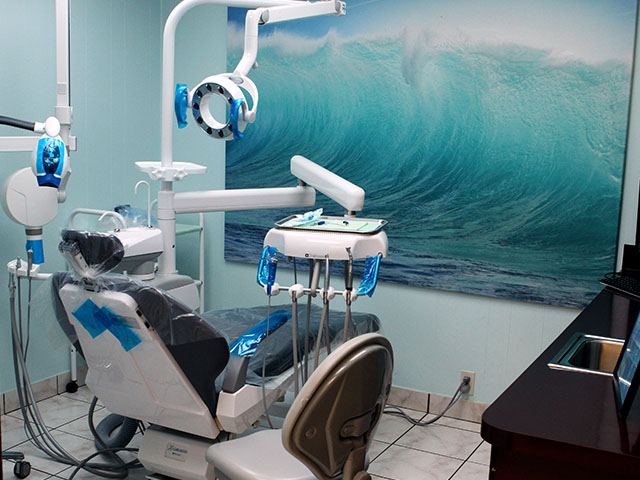
Before and After
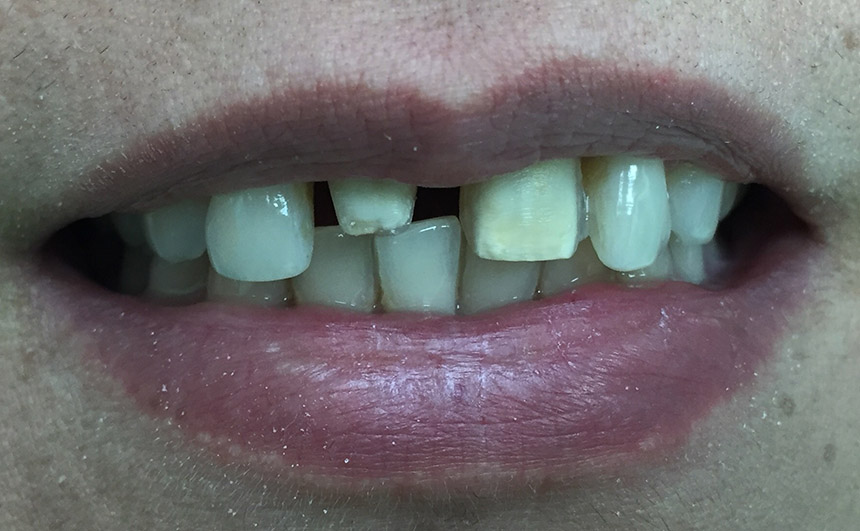
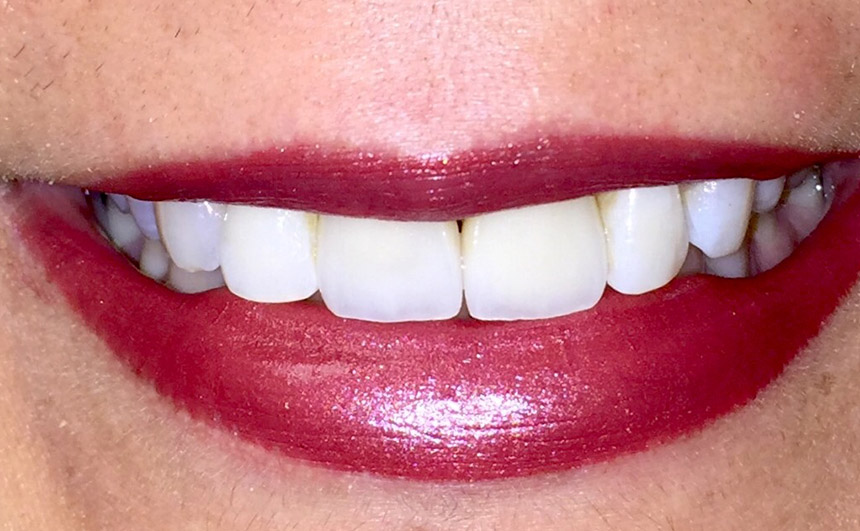


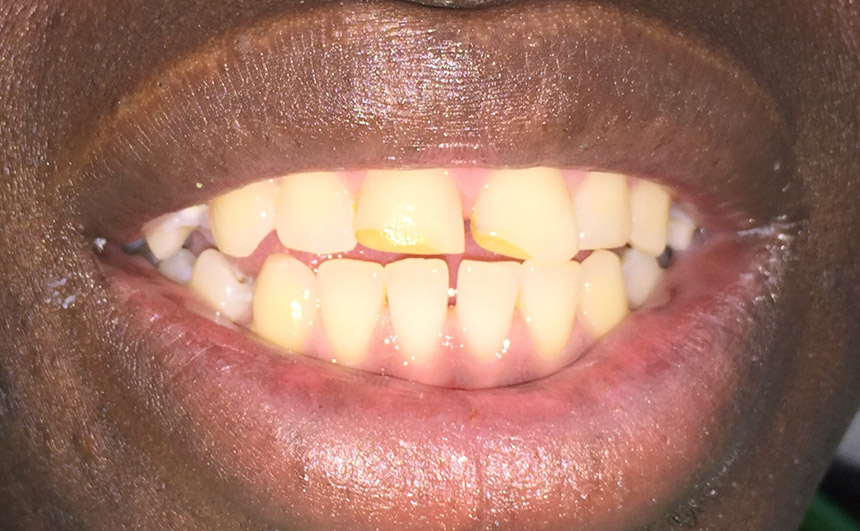
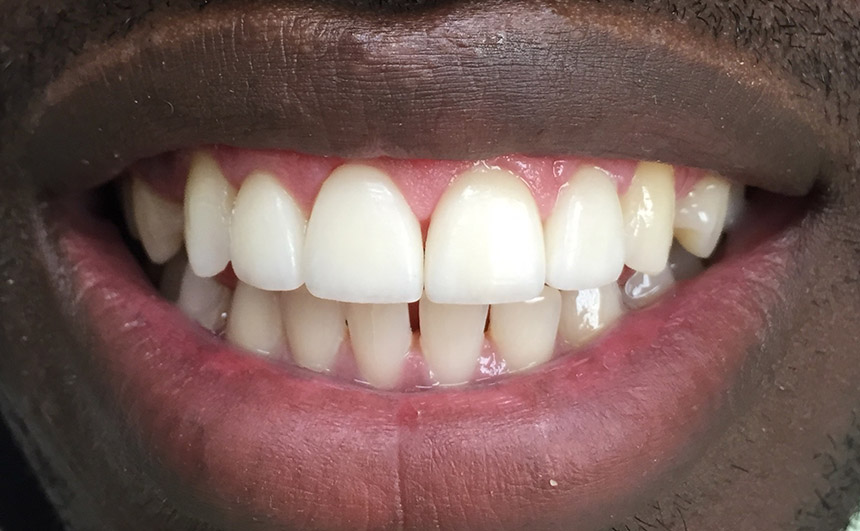


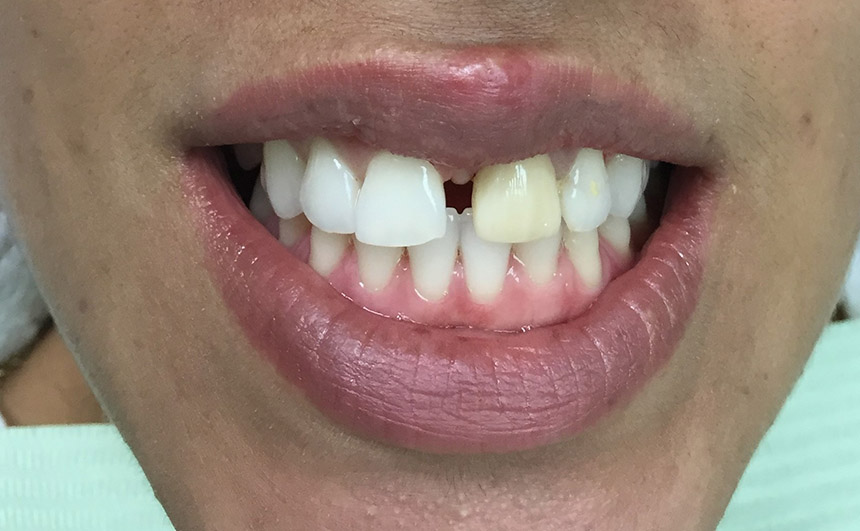
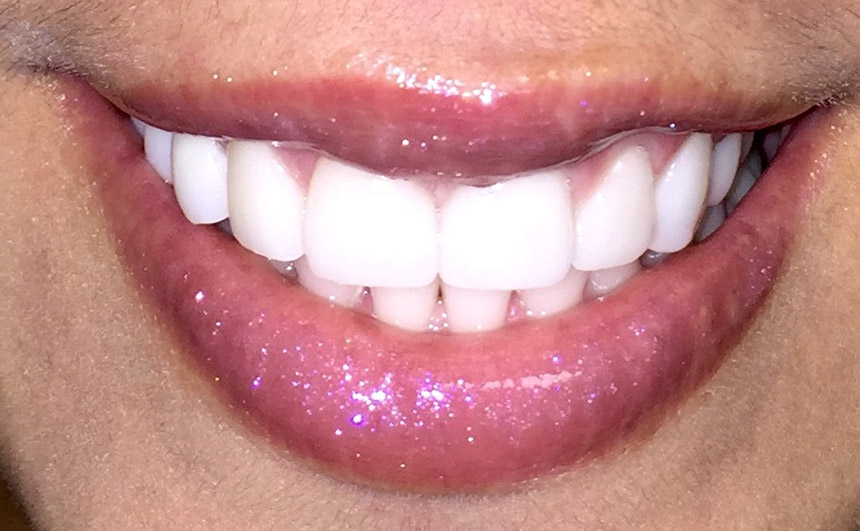
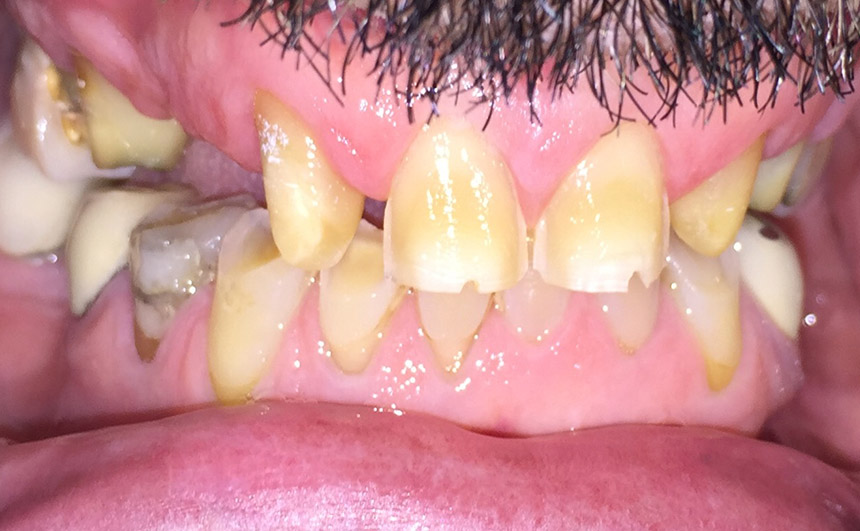
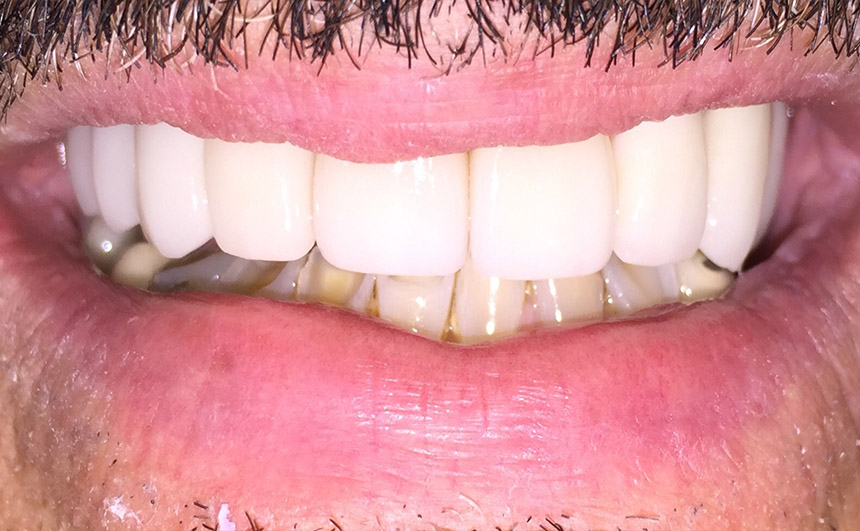


Dental Implants
The best way to replace a missing tooth today is with a Dental Implant. That
treatment has the highest success rate in dentistry today. Dental Implants also help
in the retention and support of Dentures. They have been created to improved people
quality of life.
In Westward Dental, we can help you to improve your smile and your quality of
chewing with Dental Implants. Our patients report no pain during or after the
procedure and the discomfort are so minimum that do not interfere in your normal
life routine.
Call us today for a free consultation and help yourself to keep the best chewing
quality offering health and longevity to your life.
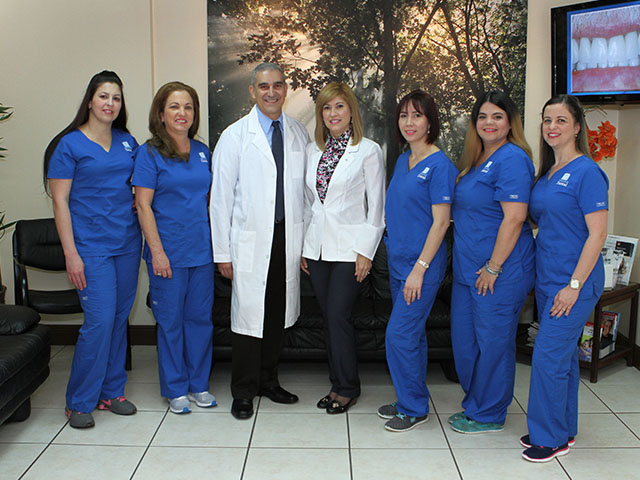
Before and After
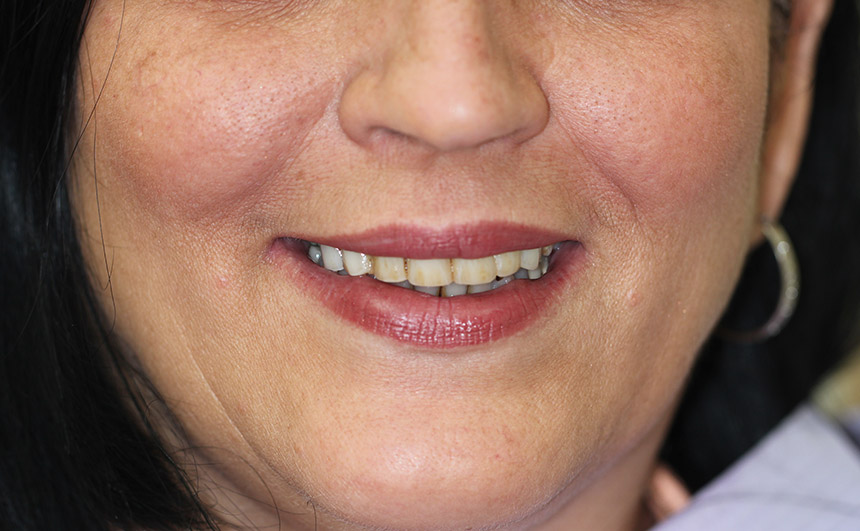
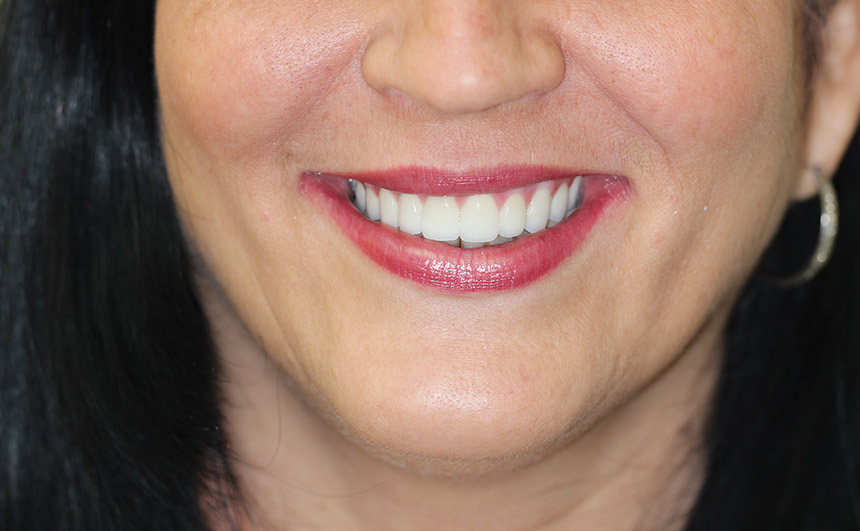
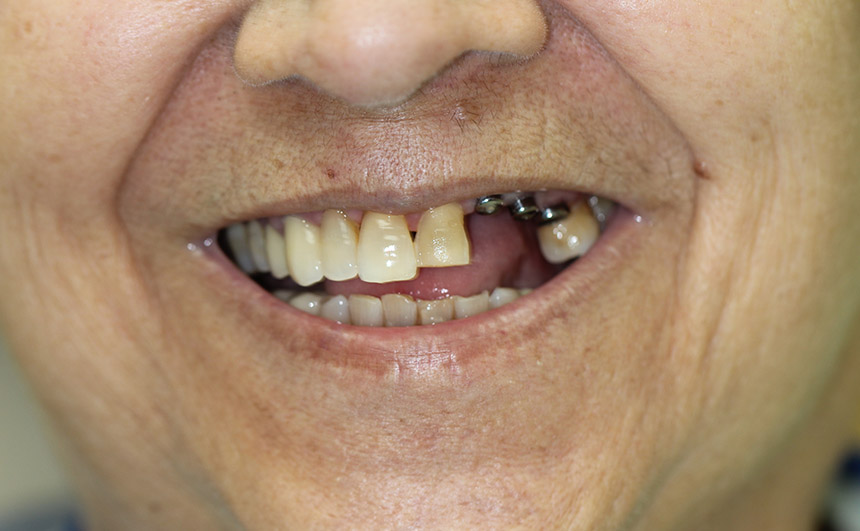
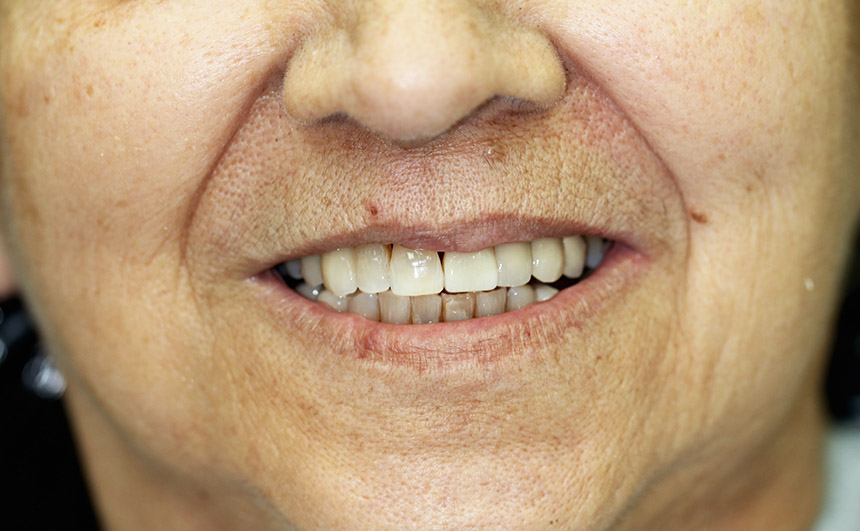


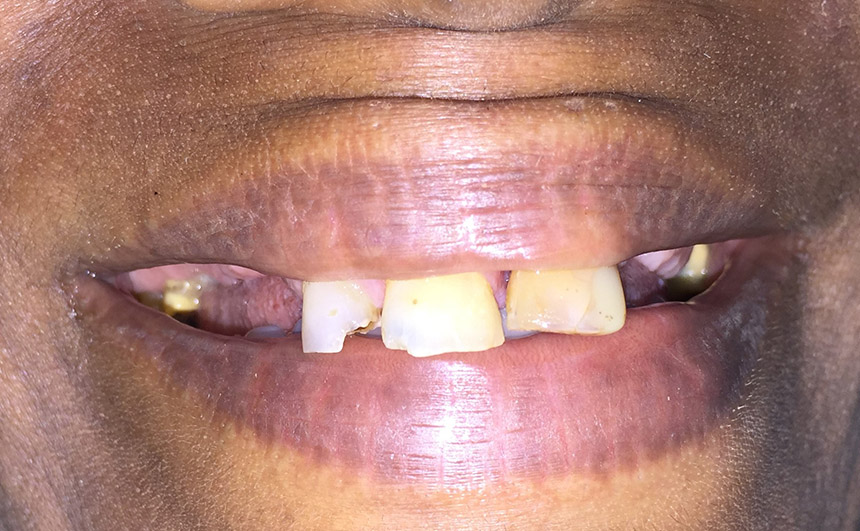
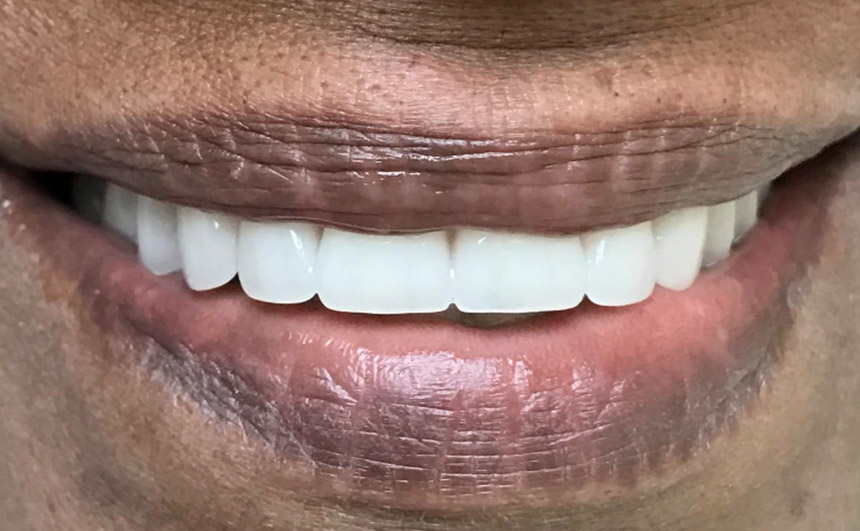




Wisdom Teeth
Wisdom Teeth problems are very, very frequent. Among those problems we can mention
frequent pain; repetitive oral infections producing chewing discomfort, inflammation
of the face and in some cases serious health issues. The continuing pressure of
poorly position impacted wisdom teeth can produce teeth crowding and destroy the
result of years of braces treatment. Also very common the adjacent molar suffer
caries and extractions have to be done as a consequence of damage produced by wisdom
teeth.
Beside these mentioned issues they produce: headache, earache, cyst, tumors, and
more. Because the big list of potential problems wisdom teeth are removed to prevent
all those issues.
With a combination of more than 25 years of experience, gentle touch and dental
sedation using laughing gas; Dr Domingo has helped thousands of patients to fix
these problems.
Call today for a free consultation and make your life easier with the prevention
of wisdom teeth problems.
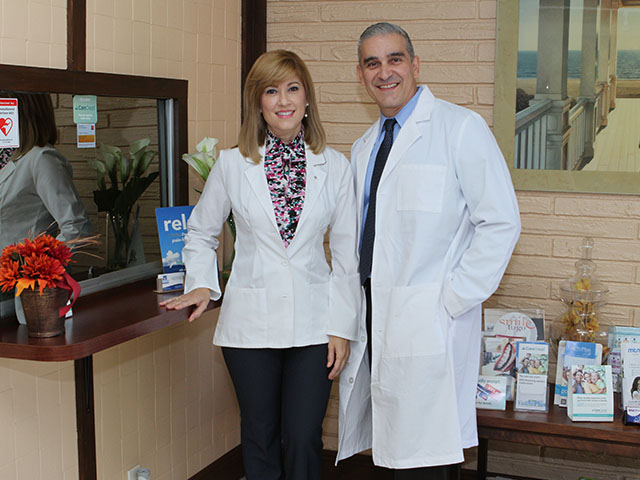
Sedation
What if you could have all your dentistry that you have been putting off for years
in the conventional dental office in one or two comfortable visits?
What if you could finally receive all of the treatment while sleeping- free of fear
and pain?
We specialize in Sedation Dentistry and Sleep Dentistry, treating people with dental
phobias and anxieties We offer different types of sedation dentistry. These include
administering oral sedation, a pill, nitrous oxide (laughing gas), and intravenous
sedation to deliver a combination of drugs. All this depends on the needs of the
patient.
In this way the patient and the dentist are comfortable providing and receiving the
best possible dental care-safe, and free of stress and pain.
What is Sedation Dentistry or Sleep Dentistry?
The patient is given oral medication about one hour before your appointment. The
medicine puts you in a light state of sedation and you sleep thru your dental
appointment. It is Safe! When you awaken your dental treatment is completed.
You need someone to drive you to and from your appointment. Once you arrive, you are
allowed to rest comfortably in a warm, quiet room under a cozy blanket. During the
entire time you are here, we will closely monitor you to ensure your safety.
Complex dental treatments that often require six or more appointments can be done in
as little as one! All while you sleep.
Call us today for a free consultation.
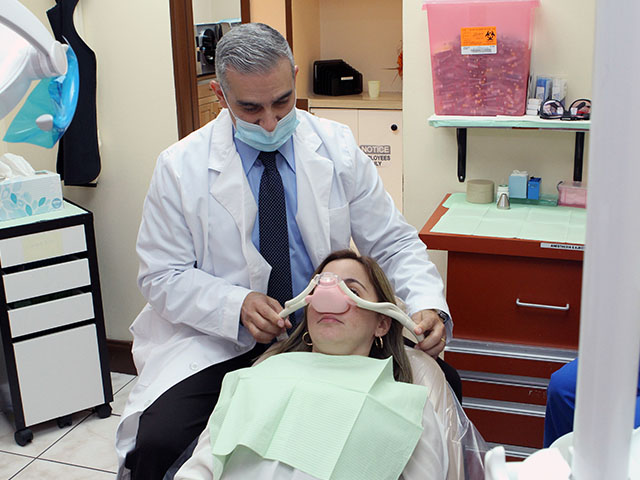
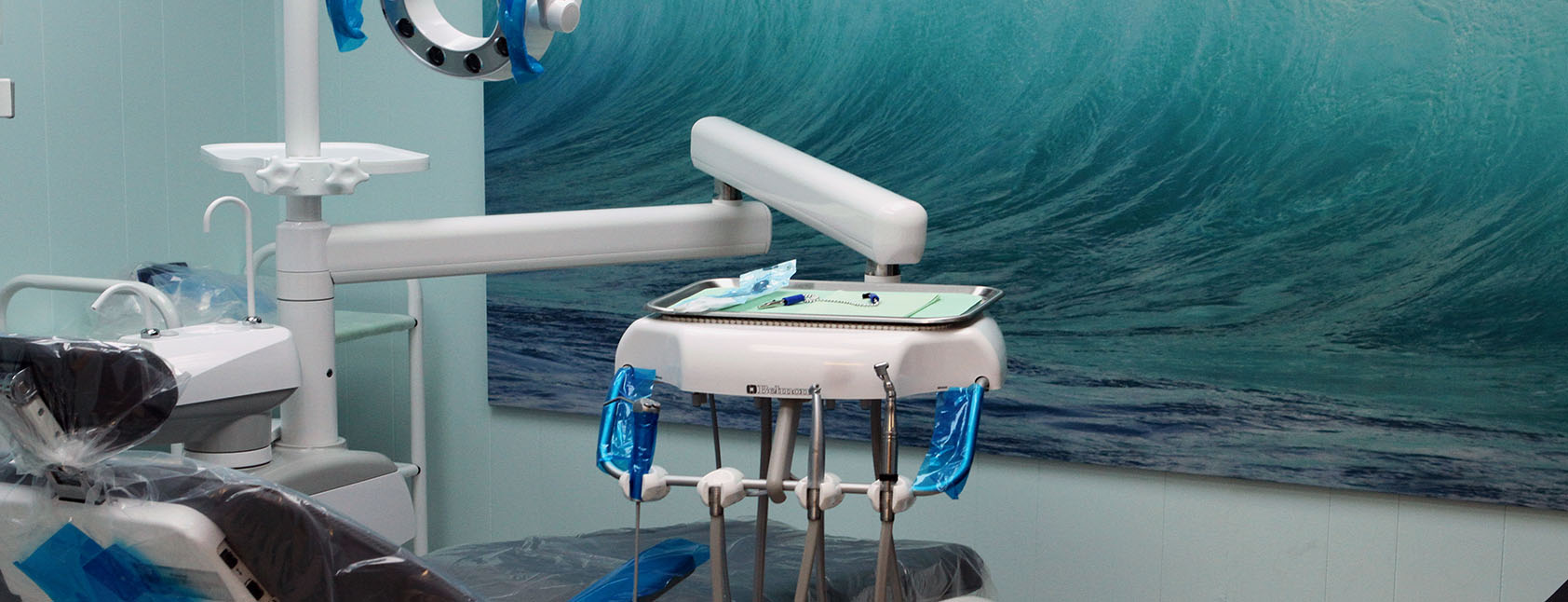
Oral conscious sedation is extremely safe and easy. It is much less expensive than other forms of sedation, and you will be able to talk and breathe on your own during the procedure. It also makes long or complex procedures seem shorter, allowing you to have all of your work done in a single visit. As an added precaution a local anesthetic will be given to the area that is being worked on to ensure that there is no pain. You will need to have someone drive you to and from the office if you use oral conscious sedation for your safety.
Don't wait any longer to have necessary dental work performed because you are nervous. Ask your dentist about oral conscious sedation to see if it is right for you.
Nitrous Oxide, known to many as laughing gas, is the most commonly used form of sedation in dentistry. It is administered by having the patient inhale the gas, which is carefully monitored by your doctor. You will fall into a euphoric state and feel completely relaxed. All feelings of fear and anxiety fade away, leaving you to sit back peacefully while your dental procedure is performed. In most cases all dental work can be completed in one visit while you are sedated.
Nitrous oxide sedation is very safe and effective. Once the procedure is over the nitrous oxide will wear off fairly quickly, and you will probably be able to drive yourself home and return to your daily activities.
You will need to have a preliminary visit with your dentist to make sure that you are an eligible candidate for nitrous sedation. If you have been worried about your next dental visit its time to stop! Ask us about sedation dentistry and schedule your appointment today.
Whitening and Bleaching
Keeping our teeth their whitest is a lot harder than it sounds. With all the coffee,
wine, smoking and other foods that have the ability to stain our teeth on a daily
basis, even proper maintenance sometimes leaves them a little lackluster. Teeth
whitening is an excellent way to restore the natural color of your teeth or even
make them whiter than your natural color if you would like.
To accomplish the whitening of your teeth, we utilize a tray whitening system. This
tray whitening system is completed in 2 steps. The first step is to make an
impression of your teeth. With this impression, we'll craft you custom whitening
trays that you can use over and over. Finally, you will take the whitening gel and
put it in the gel for a short period of time over a period of a few days. This often
results in a whiter smile of 4 - 8 shades!
Call us today for a consultation and make your dreams come true.
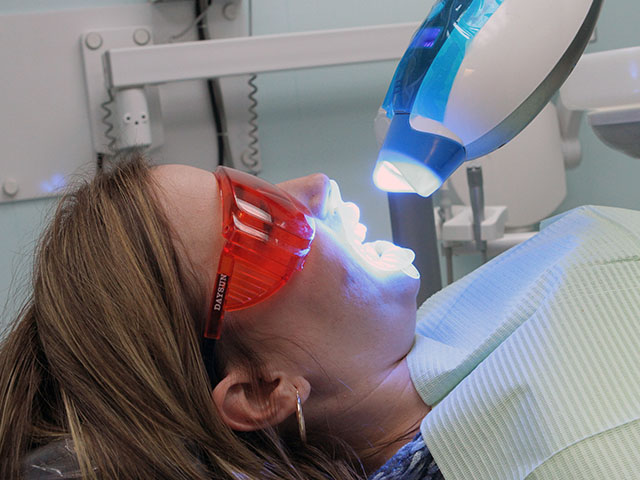
Braces (Orthodontic Treatment)
This is the technology used to align teeth and give straight perfect smile. Braces
are seen very common on teenagers with the steel color that they show very
proud.
Braces can be done at any age, but usually adult prefer not show up so much their
treatment, so braces same color of the teeth are placed and they are almost
unnoticeable.
To align teeth also we can use clear aligner that is wearing all the time helping
you to get a perfect smile.
In Westward Dental we offer all braces technology. Call us Today for a free
consult at
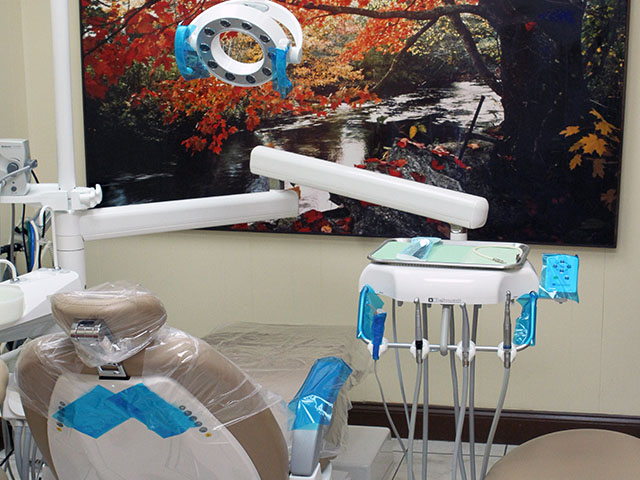
Before and After
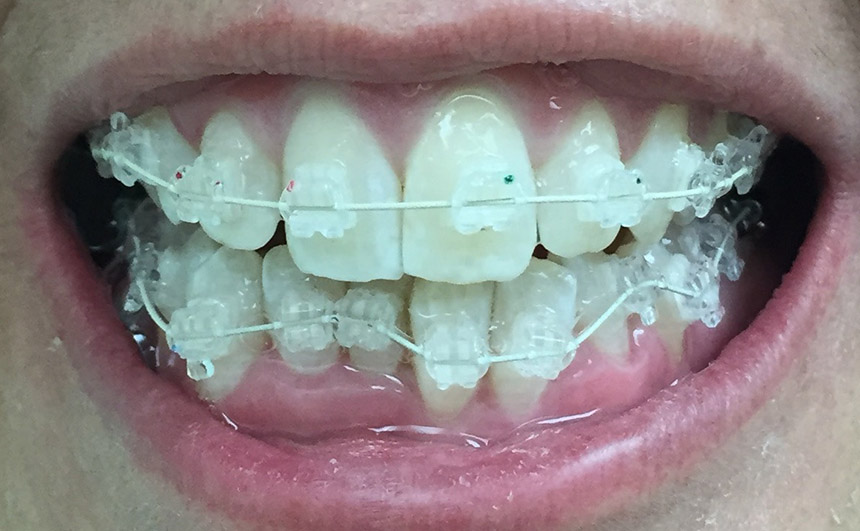
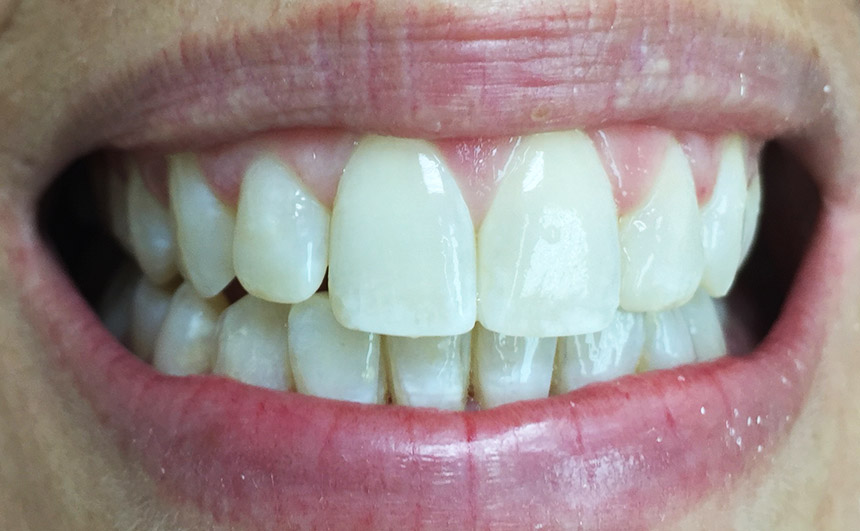
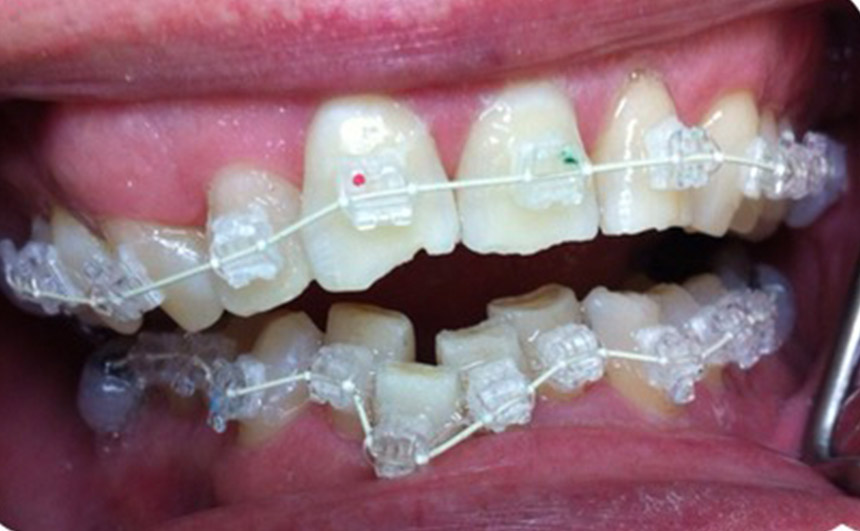
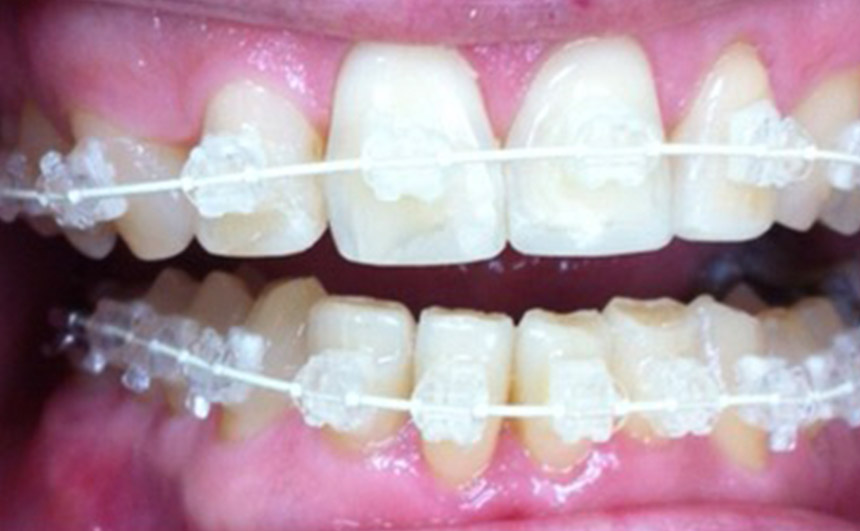
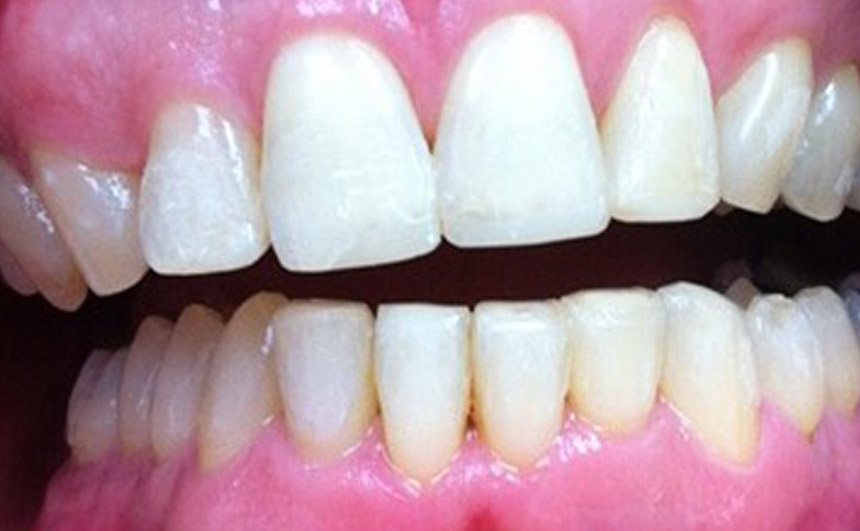
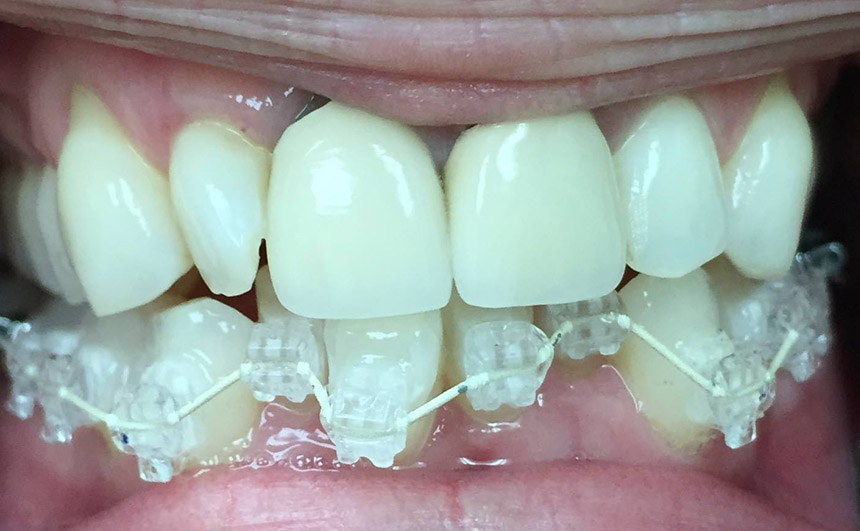
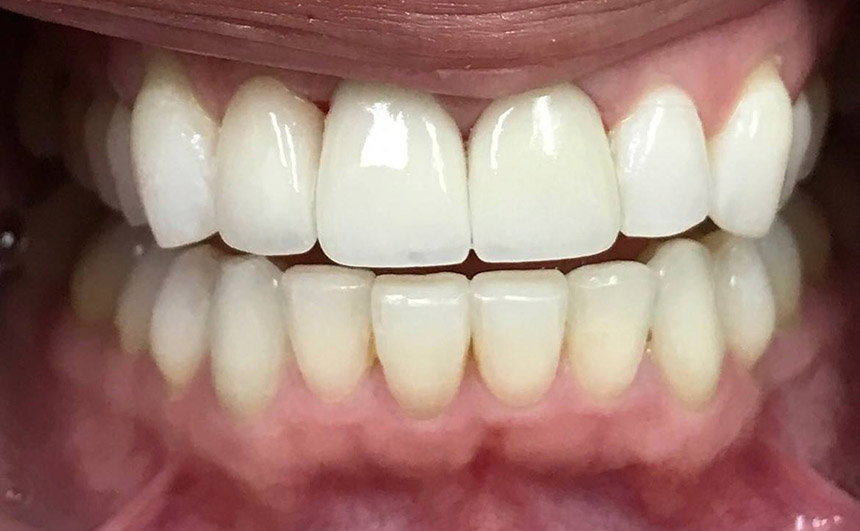
Root Canal
A root canal is a therapy done to save a tooth; consisting in removing the infection
inside the tooth and sealing it with special material allowing the tooth stay in the
mouth for a long time.
Root canal is a painless procedure; what can hurt really bad is the infection left
inside the tooth untreated. It also has a high success rate.
In Westward Dental we help a lot of patients with this therapy and we used the
latest technology making the procedure painless and very fast.
Call us Today for a consultation at

SL3 Diode Laser
Westward Dental Centre is proud to introduce the SL3 Diode Laser for procedures that
involve soft tissues to ensure patient comfort during the procedure and a fast
recovery.
The Diode Laser is generally used to treat periodontal disease. The SL3 Diode Laser
is designed to precisely remove tissue that is diseased, kill bacteria that can
potentially cause disease, sterilize the treated area and promotes healing and the
growth of collagen. Since the laser is designed to target only the soft-tissue
surrounding teeth, any implants or other hard structures will not be affected during
the laser procedure. One of the best features of the laser is the ability to use
only a topical anesthetic because the laser is so gentle!
Although the Diode Laser is used to treat periodontal disease there are many other
procedures that can be performed with a Diode Laser.
• Biopsies
• Implant access
• Cold sore treatment
• Frenum release
• Soft tissue debridement
• Orthodontic tissue control
• Clinical crown lengthening
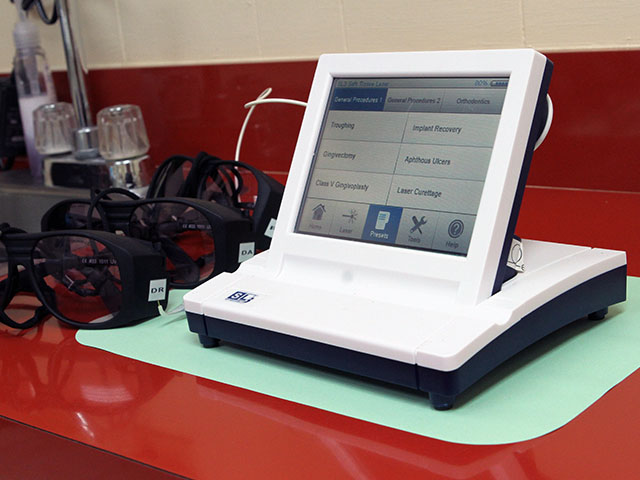
Before and After


Bonding and White Fillings
Bonding is a popular method to enhance the aesthetics of your smile. Bonding can be
used to correct cracks or gaps in teeth, as a filling after a cavity has been
removed, or to cover up stains or discolored teeth.
A composite resin is used on the affected tooth or teeth. It is molded and sculpted
over an adhesive gel that is placed on the tooth. After the resin has been applied
an, LED light is used to harden the resin, which is then polished to give you a
fresh, new smile.
Bonding is an obvious improvement over unsightly silver amalgam fillings. With the
advancements in dental technology, bonding usually lasts for over 10 years. It is a
safe, affordable, and attractive solution for many dental problems.
Call us today for a free consultation.
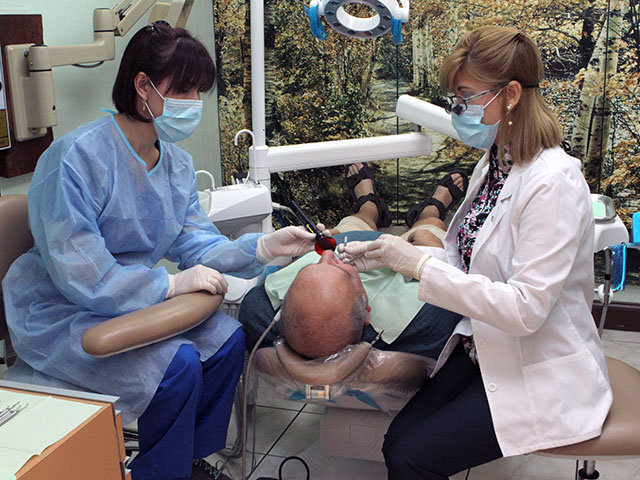
Bridges
Dental bridges are a great way to replace missing teeth. Your existing teeth are
used to literally create a bridge to cross the area where your tooth is missing.
Bridges are made from gold, metal, alloys, or porcelain to ensure that they are
strong and durable.
The process of creating a bridge begins by creating abutments out of your existing
teeth where the bridge will be attached. The existing teeth are recontoured to
provide a base for the bridge. After the abutments have been created, a mold is
taken of the area which is sent to a dental lab. The lab is able to use the mold to
create a bridge that will fit properly and feel as close to your natural teeth as
possible. The bridge consists of two crowns on either end to place on the abutments
and a pontic, which is the new tooth that replaces your missing tooth.
We will fit you with a temporary bridge while we wait for the lab to craft your
permanent bridge. This will protect the abutments and the exposed gum areas and look
more appealing than having a missing tooth. When the permanent bridge has been
created, you will have a follow up visit to set the bridge. It will be placed on the
abutments and the dentist will then use an adhesive to make sure that the bridge is
set.
The bridge may take a little while to get used to, but after a few days it should
feel like you have your own teeth back again. You should eat soft foods for the
first few days after having your bridge placed. After the initial phase, you will be
able to eat whatever you want with no issues.
If you are missing a tooth you should strongly consider having it replaced. Besides
the aesthetic disadvantage of missing a tooth, it could also cause structural
changes to your mouth and jaw, as well as making it difficult to eat or speak
properly. Set up an appointment today to restore your smile.
Call us today for a free consultation.
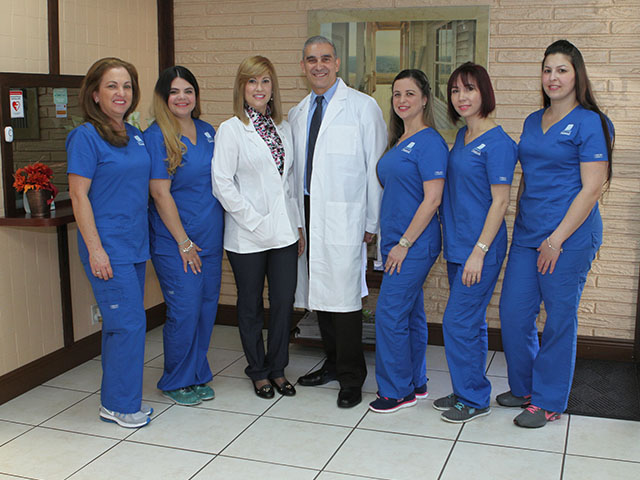
Crowns
Over time our teeth begin to weaken and become more susceptible to problems such as
decay, cracks, discoloration and others. If you feel your smile isn’t what it once
was, crowns can help you recover your smile. If your dentist notices that a tooth is
decayed or seems weakened/cracked a crown may be necessary to make sure that there
are no additional problems with the tooth. In cases like this a filling or bonding
will not be sufficient.
Crowns can be made from porcelain, porcelain fused to metal, or a full gold crown.
To maintain a natural look and feel a porcelain finished crown is best, as it can be
matched to the shade of your other teeth. This will allow it to blend in and appear
just like one of your natural teeth.
The process of installing a crown takes 2-3 visits to the dentist. On the first
visit the tooth will be reshaped by filing down the enamel so that the crown can be
placed over it. You will be given a local anesthetic before this part of the
procedure so that you do not experience any discomfort. Once the tooth has been
reshaped, a mold will be taken of that tooth and the surrounding teeth. This mold
will be sent to a dental lab so that your new crown can be made so that it fits in
the spot created for it and looks the same relative to the surrounding teeth. Before
leaving, your dentist will fit you with a temporary crown until your permanent crown
is ready.
The crown takes about 2-3 weeks to be returned to your dentist. At this time you
will have another appointment to place and fit the permanent crown. You will again
have a local anesthetic to numb the area and the tooth will be placed using a cement
to ensure the tooth sets in place. When you look in the mirror, you will see your
old smile back. Crowns are durable and will usually last about 10-15 years. You
should care for it as you would any of your other teeth with regular brushing and
flossing. Call us today if you would like to learn more about how crowns can help
restore your smile.
Call us today for a free consultation.

Dentures
Dentures are a replacement for missing teeth that can be removed and put back into
your mouth as you please. Depending on each individual patient case, they may
receive full or partial dentures. Full dentures are used when all of the natural
teeth are removed from the mouth and replaced with a full set of dentures. There are
two types of full dentures.
- Conventional Full Dentures - This is when all the teeth are removed and the tissue
is given time to heal before the dentures are placed. It could take a few months for
the gum tissue to heal completely, and during this time you will be without
teeth.
- Immediate Full Dentures - Prior to having your teeth removed, your dentist takes
measurements and has dentures fitted for your mouth. After removing the teeth, the
dentures are immediately placed in your mouth. The benefit is that you do not have
to spend any time without teeth. You will, however, need to have a follow up visit
to refit your dentures because the jaw bone will slightly change shape as your mouth
heels. The dentures will need to be tightened after the jaw bone has healed.
Partial dentures are another option when not all of your teeth need to be removed.
This is similar to a bridge, but it is not a permanent fixture in your mouth.
Your dentures may take some time to get used to. The flesh colored base of the
dentures is placed over your gums. Some people say that it feels bulky or that they
don't have enough room for their tongue. Other times the dentures might feel loose.
These feelings will affect the way you eat and talk for a little while. Over time,
your mouth becomes trained to eat and speak with your dentures and they begin to
feel more and more like your natural teeth. They may never feel perfectly
comfortable, but it is much better than the alternative of not having teeth.
Even though dentures are not real teeth, you should care for them like they are. You
should brush them to remove plaque and food particles before removing your dentures.
After they have been removed you should place them directly into room temperature
water or a denture cleaning solution. Never use hot water because it could warp the
dentures. Your dentures are delicate, so make sure you are careful when handling
them so you don't drop them. Also, never try to adjust your dentures yourself. You
could ruin them, so you should always seek assistance from your dentist if they feel
uncomfortable or loose.
Call us today for a free consultation.
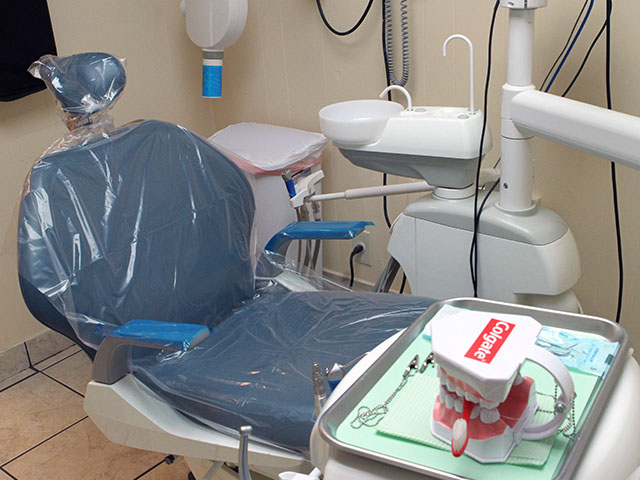
Extractions
Wisdom teeth extractions are a fairly common procedure. Wisdom teeth often cause
problems as they are trying to protrude through the gums. When a wisdom tooth is
impacted, it means the tooth is coming in at an angle and not straight through the
gum line. This can cause pain, the tooth can come in unevenly, or the tooth may only
emerge partially.
When a wisdom tooth only emerges partially a flap of skin, called an operculum, may
form over the tooth. This can make the tooth hard to clean, and pieces of food may
be caught under the skin. This makes it easy for an infection, called pericoronitis,
to develop. It will usually go away on its own, but it causes swelling and pain in
the area.
Impacted teeth and wisdom teeth that can potentially cause problems, like
infections, need to be removed. Extractions can range from a single tooth, to
removing all four wisdom teeth at once. Based on the preference of the doctor and/or
the patient, a local anesthetic could be used to numb the areas where the teeth will
be extracted. Others will prefer to go under a general anesthetic so that they will
be sedated during the procedure.
The gum tissue around the wisdom tooth is cut open to reveal the tooth. The tooth is
loosened by gripping it tightly and wiggling it back and forth until it can be
lifted out of the gums. Sometimes a tooth may be impacted so tightly that it cannot
be simply lifted out of the gums. In cases like this the tooth will be broken up
into pieces first before being removed. Depending on the incision and extraction
site, sutures may be needed to close the area. Soluble sutures are the best option,
which will dissolve on their own.
After the surgery you will need to rest. You need to be driven home by a friend or
family member because of the anesthesia. You can expect for the extraction site to
bleed for a little while after the surgery. Gauze will be applied at the completion
of the surgery, and you will need to change it when it becomes soaked. If bleeding
continues for longer than 24 hours you should call your dentist. Rest when you
return home, but do not lie flat. This could prolong the bleeding. Prop your head up
on a pillow when lying down. Your dentist will prescribe you pain medication, so if
you become sore take as directed. You can also use an ice pack for the pain. Your
dentist might also provide you with a cleaning solution to clean the extraction
site.
You will be limited to soft foods for a few days after your surgery. Some
recommended foods are:
- Gelatin
- Pudding
- Yogurt
- Mashed Potatoes
- Ice Cream
- Thin Soups
- ...and other food you can eat without chewing.
When drinking, make sure you do not use a straw. The sucking motion can loosen your
sutures and slow the clotting process. The same goes for smoking. If you have
prolonged pain, bleeding, irritation, or don't feel that the extraction site is
healing properly call your dentist for a follow up.
Call us today for a free consultation.
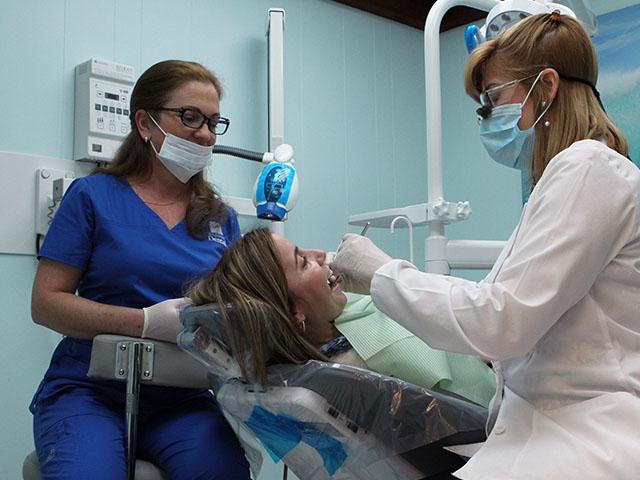
Dental Hygiene and Periodontal Health
While at our office, we make sure that you receive the highest level of service and
ensure that our dental work is of the highest quality. To ensure that you maintain
great oral health, this level of quality needs to extend into your personal oral
hygiene routine. We can help you establish a dental hygiene routine that will keep
your teeth healthy and white. If you have any questions about your current hygiene
plan please ask us.
Your teeth are not the only important part of your mouth. Your gums are essential to
oral hygiene as well. We can provide periodontal cleanings and treatment, or refer
you to one of our recommended specialists. Please let us know if you have any
questions.
Call us today for a free consultation.
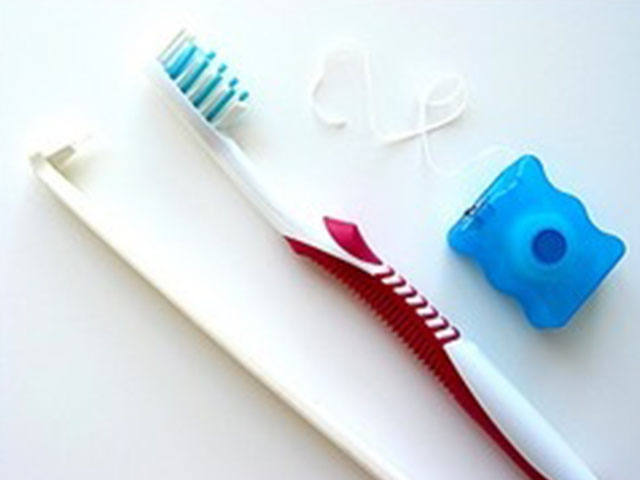
Extraction Site Preservation
When removing a tooth it is important to consider what will be done with the empty
space after that tooth is removed. Wisdom teeth are in the back of the mouth, so
that site will heal on its own with no complications. If it is necessary to remove
another tooth, plans must be made. If a tooth is removed and nothing is done with
the extraction site, the jaw bone will degenerate and change shape during healing
and can cause your teeth to shift. This can create problems in your bite and affect
your ability to speak and chew.
If you want to fill the space with a dental implant, a sturdy jaw bone is necessary
to install the implant. If you opt for a dental bridge, the bridge must be molded
and placed before the teeth shift.
Your dentist is always open to a conversation on what you would like to do with your
extraction site before removing a tooth. They will be able to make a recommendation
and layout a treatment plan. Make sure to schedule follow up appointments to
properly care for your extraction site.
Call us today for a free consultation.

Inlays and Onlays
Inlays and onlays are often referred to as partial crowns. They use the existing
tooth as a base and fit the inlay or onlay onto the tooth. This is done to
strengthen the tooth, restore its shape, and prevent further damage. An inlay is
done when there is no damage to the cusps of the tooth and the inlay can be placed
right on the tooth. An inlay is used when the damage is a little more extensive.
The decayed area of the tooth is first removed during the procedure. A mold of the
tooth is then taken and sent to a dental lab. They create a restoration made from
porcelain, gold, or a composite resin. The restoration takes about 2-3 weeks to
make, so a temporary inlay or onlay will be placed on the tooth for that time.
During your next visit the inlay or onlay will be placed into your mouth and set
with cement. Your tooth will look natural and you or anyone else won't be able to
tell the difference.
Call us today for a free consultation.
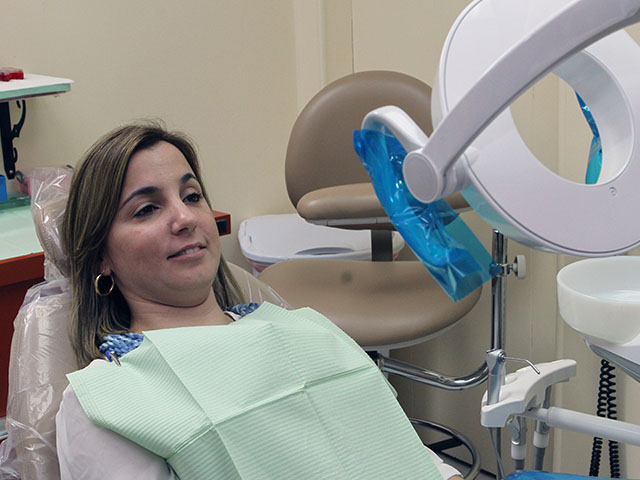
Night Guards
Many people are afflicted with bruxism, or teeth grinding. Some people may do this
consciously during the day, but it is a larger problem at night while you are
asleep. Grinding your teeth can damage enamel, wear down teeth, cause jaw pain, or
irritate your gums. The noise from teeth grinding can also disturb your spouse's
sleep if loud enough.
If you grind your teeth you should consider a night guard. The night guard, which is
very similar to a mouth guard worn by athletes, provides a barrier between your top
and bottom teeth while you sleep. All night guards are custom fitted for comfort and
to allow for proper breathing. Your dentist will take an impression of your teeth
and have the night guard created by a dental lab. Night guards are very durable and
can be used for up to 10 years.
There are also some things that you can do to try to stop teeth grinding. You can
train your jaw to be free and easy rather than clenched. Refrain from chewing gum or
on other objects like pens. You should also avoid alcoholic drinks and drinks with
caffeine, as these can increase the likelihood you will grind your teeth. If you
suspect you might be grinding your teeth at night set up an appointment with us
today.
Call us today for a free consultation.
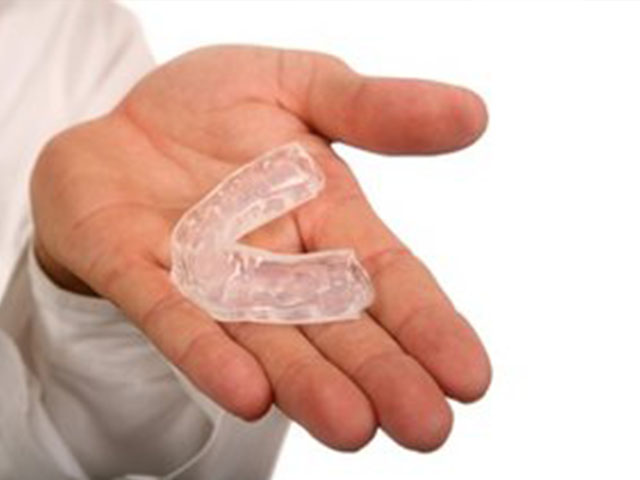
Protective Mouth Guards
Mouth guards are an essential piece of equipment in contact sports. They should be
worn by athletes of all ages who participate in sports such as:
- Football
- Hockey
- Lacrosse
- Wrestling
- Basketball
- Baseball/Softball
- Soccer
- ...any sport where contact is a possibility.
Wearing a mouth guard helps prevent against structural damage to your teeth and jaw
and also helps prevent injuries such as lacerations to your cheeks, tongue, and
lips. Mouth guards have also been shown to help decrease the risk of
concussions.
Mouth guards are available in most any sporting goods store, but you should be
careful when purchasing a mouth guard. Mouth guards like this do not offer the best
level of protection. They are also usually ill-fitting and uncomfortable.
For the highest level of comfort and protection, you should visit your dentist for a
custom mouth guard fitting. A custom mouth guard is created specifically for the
optimal protection of YOUR mouth. It is created with thin plastic that is hardened
to protect your teeth. The thinness of the custom mouth guard allows for easy
breathing and also allows for easy communication (especially important for you star
quarterbacks calling out the signals).
See your dentist today for a custom mouth guard to protect your teeth and ensure
that you maintain the highest level of performance on the field, court, or rink.
Copyright 2017. All Rights Reserved.
Web Design by Smart Graphic Corp.
Powered by
PixelPulse Web Studio

